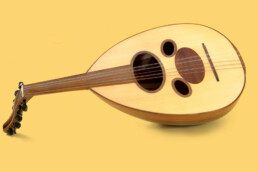The validity of ablution (wudhu) for women wearing nail polish has been a persistent question posed to jurists in the modern era given that nail polish is a relatively new phenomenon. My aim here isn’t to negate variant views – nothing significant is lost by not wearing nail polish all the time and I feel both sides of the debate have reasonable positions.
This is not a fatwa but a brief informative article, primarily for members on the Digital Learning Hub, to offer some clarity around the issue. I’m cursorily providing both sides of the debate with two different hats as any scholar ought to be able to do. It’s also important to keep in mind that jurists have differed on issues far greater than nail polish without resorting to juvenile polemics.
We begin with God’s guidance:
When you are about to pray wash your faces and your hands up to the elbows…
Quran 5:6
The question ultimately comes back to the intent of God – the way He expects such washing. Given that God spoke originally to 7th century Arabs, it is important to keep in mind how they would have taken it, primarily the Prophet and his apostles. What we all agree on is that the ‘urf (custom) and ‘ādāt (habits) of the ancient Arabs saw ‘wash’ as flowing water passing over physical limbs and that God provided concessions along with their parameters around the head and the feet (by wiping over full coverings: socks, headscarves, and turbans), as well as bandages.
Now to keep it simple here, there are two contrasting positions that can be adopted:
The first position simply puts it that nail polish, by virtue of the lacquer being a primary ingredient of the substance, forms a waterproof barrier on a part of the hand (the nails) that has been ordained for washing. Like dirt, this barrier needs to be removed first otherwise it cannot be said that the hand in its entirety has been washed and the divine injunction “wash your faces and your hands” fully met. We see that the Prophet called out “Woe to heels destined for the fire!” (al-Bukhari) to his companions who had missed out washing the entirety of their feet by leaving their heels dry and we deduce from this that incomplete ablution is not acceptable.
The second position I would frame as the following multi-layered argument:
1. What are the operative principles in the question of nail polish? Today’s discussion is forensically microscopic and cellular, speaking about substances’ permeability and breathability. But all this was irrelevant when the Law was revealed. The Prophet applied resin to his hair to stick it together during hajj (al-Bukharī), the Prophet’s wife A’ishah used to comb and oil the hair of the Prophet while he was in i’tikaf (al-Bukharī), and he encouraged using olive oil for hair and skin (al-Tirmidhī) where Anas relates that he would oil his head a lot. This oil was often infused with musk which A’ishah relates that the Prophet particularly liked and well as exhorting others to apply it. Further, he encouraged applying koḥl at the roots of eyelashes: “Use antimony for koḥl as it enhances vision and grows (eyelash) hair” (al-Tirmidhi). All of these are impermeable at a microscopic cellular level during ablution. Yet resin, oil, and henna colouring didn’t even countenance a discussion around permeability/non-permeability.
2. What was the sensibility of early believers? The early believers around the Prophet would simply perform ablution over everyday usage of colouring and body/hair oil. In everyday activity, neither they nor we would consider not to have washed our hands merely because we have nail polish on. Nor when we ask someone to wash their hands do we demand taking nail polish off for them to attain cleanliness/purity. The baseline perception of nail polish here is that once it has dried, it has adhered to the body semi-permanently and is no longer a foreign substance. Moreover, it requires an acetone remover to be wiped off – it is not analogous to dirt or other impurities specified in ablution. In other words, what was attached to the skin and not removable by light washing was perceived differently to foreign substances sitting loosely on it (such as clay or dirt) – and this seems to be the factor in such determinations.
If it is argued that what’s under consideration for ablution isn’t a human idea of purity but God’s, the argument that nail polish is a foreign substance that must be removed is not decisively from God but their construal (ijtihād) of His view of ‘washing’ – just as we have ours. What was understood (maʿrūf) among the Ṣaḥābah was that washing dyed limbs without removing dye or oil was sufficient and did not warrant closer examination. We similarly have a common-sense concept of what it means to wash our hands, and nail polish never factors into that debate. In light of this, there is no reason to introduce it as a consideration relating to the validity of washing without a shar’ī prompt to do so.
3. What is the purpose of ablution? If interlocutors view ablution as a symbolic and mindful exercise, then nail polish is immaterial, as ablution is not meant as a thorough cleansing. But if they deem ablution to also be a matter of cleansing, firstly a nail with polish on cannot be said to be dirty if it is washed, and secondly, the focus of ablution has always been on the skin and hair, not nails. In the hadith corpus, maintenance of the nails is focused on cutting them and cleaning what’s underneath, not washing over them, unlike skin.
4. There is a significantly related issue here in the form of scholarly discussions on dirt under fingernails as an impediment to water reaching the skin. Scholars were sympathetic to the idea of water not reaching the skin under the nails (the nail was not even a consideration!) due to dirt, but still achieving purity for ṣalāh.
Al-Nawawi in al-Muhadh’ab cited al-Ghazali as writing of the shar’ī validity of a believer’s ablution and bath in such a case and that it is overlooked saying, ‘because the Prophet would incite them to cut their nails and disparage the dirt caught under it but he did not command them to repeat their ṣalāh.’ Going further, Ibn Taymiyyah put it in Fatāwa al-Kubrā: ‘If a little amount of nail dirt and its like prevents water, purification is still valid – this is a perspective of our (Ḥanbalī) school – and similarly everything that is considered a little that prevents water, wherever it may be, such as blood or dough…” Similarly, Ibn Qudāmah and al-Mardāwī in al-Inṣāf opined that a little dirt under the nails or in the nasal passage that prevented water was overlooked.
Yes, the matter came down to the amount of a substance (which is defined by ‘urf, and applied mostly to skin and not even nails), but speaking of impediments to water reaching the body surface whether dirt or dough, small amounts have been classically viewed as legally inconsiderable due to the realities of everyday living. Considering this point here then is nothing new.
The idea of overlooking everyday substances is drawn from the famous hadith about cats with their purity, reasoned by the Prophet: “They are not impure; they are (things) that are around you often.” (Abu Dawud) Of course, like nail polish, cats are not a necessity either but given cultural habits in everyday life, achieving and maintaining a state of purification isn’t as particular as interlocutors make out. As such, and with keeping the level of detail we are required to consider in mind, the degree of pedantry presented by interlocutors is excessive.
6. When it comes to legal methodology, many interlocutors exhibit a degree of inconsistency in their application of the Law. They adopt a scientific approach in the case of nail polish but when it comes to moonsighting, paternity tests, and so on, they revert to and stress simple perception as a means to determine legal validity and reject a scientific approach that offers a far higher level of veracity in those situations. If perception is a valid shar’ī determinant, then it is equally applicable here.
In summary: When it came to colouring on the hands and arms, oil and dye in the hair, or antimony around the eyes, early believers didn’t venture into permeability, nor did they view colour on the skin or oil in the hair as affecting ablution. On colouring, this was neither a shar’ī concern nor can it be said to be analogous with clumps of dirt. The level of detail they adopted was down to simple perception: was it a foreign substance that could be washed away or not?
Now this is a brief and cursory characterisation of both sides of the argument, there is far more that can be parsed. However, before ending I would like to point out some of the mistakes or weak arguments that should not even reach the table:
- “Ablution is just ‘spiritual’ so it doesn’t matter”: This characterisation is misinformed and superficial. Pithily put, ablution is to freshen up for standing before the King in devotion. Whilst freshening up is obviously a light clean up, the sentiment behind doing so is understandably to also prepare, both psychologically and emotionally, for the event. Ablution, like ṣalāh, has a material function, not just an emotional one.
- Leaning on concessions of wiping or tayammum: shar’ī concessions relate to specific phenomena and involve specific parameters. Tayammum is related to the unavailability of water, which has nothing to do with washing over nail polish with available water. Neither is the concession of wiping over a foreign object relevant here as it relates to two limbs (the head and the feet) and not every limb. The hands and face have not been included in the divine concessions.
- “People will not convert”: Whilst we should always consider the facilitation-factor to godly subservience, negating what God might want from us, to do what He wants is an absurd proposition. If a supposed believer refuses to glorify God and show awe-filled humility before their King over the inconvenience of having to remove nail polish, then I don’t think nail polish was the problem in the first place. Whilst people will exhibit varying levels of commitment to God that we ought to facilitate, there is a benchmark and anything below that is just downright offensive to God. I’ve written more on this here.
A general note to end on:
Demeaning hyperbole around the topic is unwarranted, with statements such as “if nail polish is more important to you than your ṣalāh…” or “You want to go to hell for some nail polish…” Furthermore, citing the hadith of Nu’man b. Bashir on avoiding the ‘grey matters’ is unrelated to the issue. Yes, the believer should not do something that unsettles her, the Prophet saying: “Leave what unsettles you for that which does not unsettle you” but if she is not unsettled by ablution over nail polish nor sees it as a grey matter, then logic dictates that the statement clearly does not relate to her. Following the above, if a believer is convinced that nail polish is a foreign substance that needs to be removed for her to completely wash her hands, it is acceptable to make this conclusion. Similarly, if a believer is not convinced that nail polish is a foreign substance, it is acceptable for her to wash her hands as she normally would in order to complete her ablution.
Furthermore, to reduce the impetus of the believer’s perception to the idea that “she just wants to follow her desires” is a deeply imbecilic and exaggerated response. God made everything permitted (unless stipulating an exception to this rule) so that people would enjoy His bounties and favours, and express gratitude. To enjoy God’s bounty in the absence of exception is not a blameworthy ‘desire’, and the inflated suggestion of sensuous pursuit is amusing. Moreover, the Companions frequently sought leniency from the Prophet and never did the final messenger of God express the idea that this was “following desires.” In fact, the opposite is inarguably true, he scorned pedantic questions on matters that were not incontrovertibly harmful and discouraged seeking out prohibitions or overestimating harm. Instead, he regularly incited his companions to get on with humble submission to God in the form of praising and glorifying Him, celebrating His name, engendering awe-filled reverence, and expressing gratitude – as characterised and contextualised in God’s revelation.




